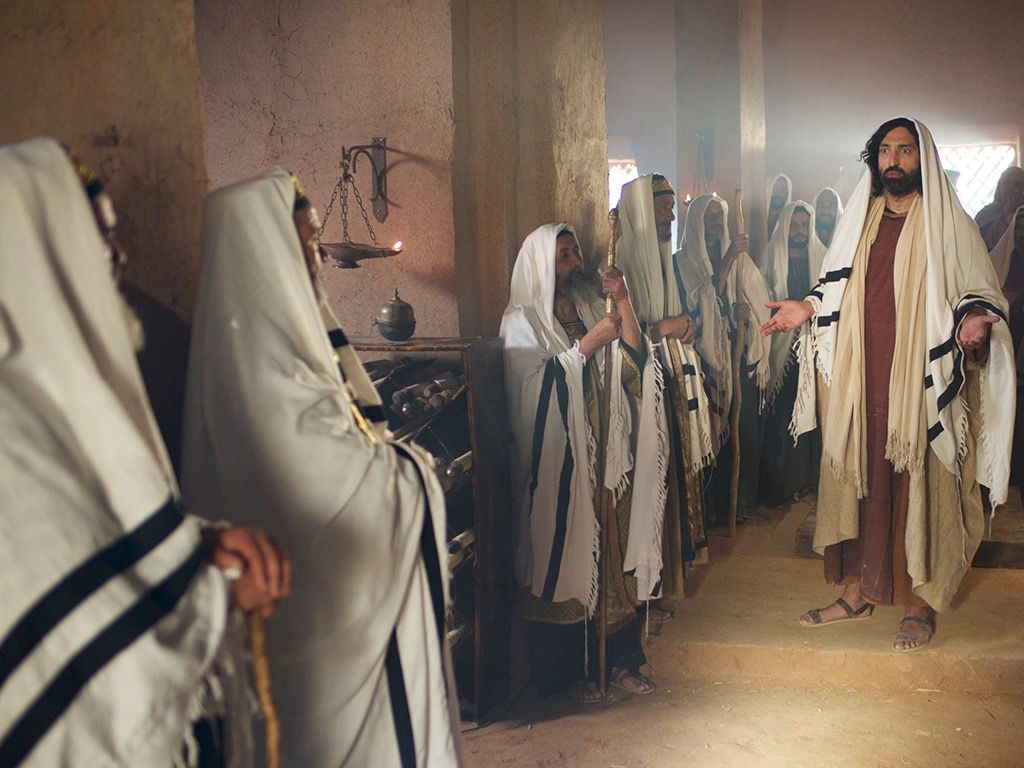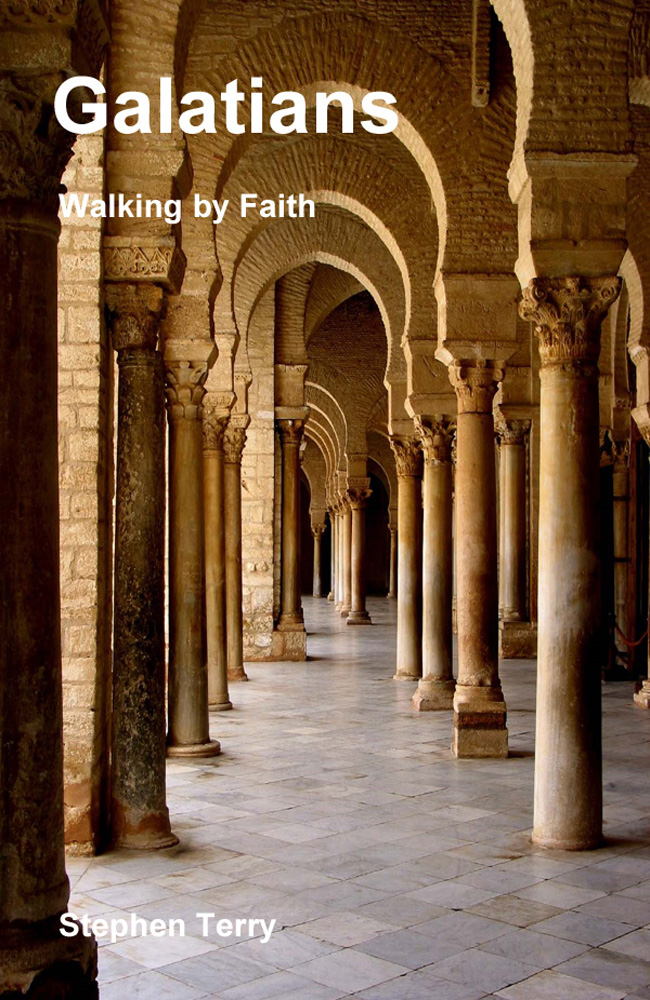Resting
in Christ
Stephen
Terry
Commentary
for the May 7, 2016 Sabbath School Lesson
 “There
remains, then, a Sabbath-rest for the people of God; for anyone who enters
God’s rest also rests from their works, just as God did from his. Let us,
therefore, make every effort to enter that rest, so that no one will perish by
following their example of disobedience.” Hebrews 4:9-11, NIV
“There
remains, then, a Sabbath-rest for the people of God; for anyone who enters
God’s rest also rests from their works, just as God did from his. Let us,
therefore, make every effort to enter that rest, so that no one will perish by
following their example of disobedience.” Hebrews 4:9-11, NIV
One of the oldest ideas in the Bible, one that goes back
to Creation Week itself is the idea of rest. God rested from His work after He
spoke everything into existence. We are told that He rested for an entire day.
The Bible does not call that day the Sabbath, but perhaps more significantly,
it refers to it as the “seventh day,” an appellation that more precisely pinpoints
it as one day at the end of and set apart from the preceding six days. Today we
refer to that as a week, and that seventh day as the Sabbath. But the structure
of the week has become somewhat confused since then as we now work five days
rather than six and have relegated two days to the weekend instead of one.
When we look at a modern calendar and count out the days, we see that the week
begins with Sunday and ends with Saturday. This helps to understand why these
two days, like book ends on a shelf, are called the weekend. But when we count
these days out, we also notice that when we number from left to right, from one
to seven, the seventh day is Saturday. But the day most associate with spending
time with God today is Sunday. Is the calendar wrong? Or did someone change the
day? If so, why would it be changed?
Some might say that it does not matter, that since we are under grace we
worship God every day so there is no longer a special day set aside for our
time with Him. This over looks that everyone who has ever been saved on Earth
was saved by grace, not by Law, yet in spite of that, God’s people have long
held the weekly Sabbath to be sacred based on the blessing God placed on it at
Creation.[i] Some might also say that
the actual day was lost over time so that we cannot determine it today. One
time when this might have been said to have happened was during the four
hundred years of Jewish captivity in Egypt. However, if there was any doubt, after
they escaped their slavery, God commanded them to remember the day and then
proceeded to reinforce which day of the week it was through the weekly miracle
concerning the manna.[ii] Every day of the week, He
provided ample Manna for them to eat while in the wilderness, but on the sixth
day, He provided a double portion to tide them over so they would not need to
gather it on the Sabbath. If they tried to save some over on any other day of
the week it became foul, only the extra portion given on the sixth day could be
preserved through an extra day without becoming rank. This continued for the
forty years they wandered between Egypt and Canaan. By that time, there had to
be little doubt as to which day was the Sabbath of the Fourth Commandment.[iii] It is in that
commandment that we see the terms “Sabbath” and “seventh day” used
synonymously.
The Jews continued to honor this day without a break in
the sequence of the Sabbaths right through the time of Jesus. There can be
little doubt therefore which day of the week is referred to. Jesus honored the
day with attendance at synagogue.[iv] He also often entered
into disputes with the religious leaders of His time regarding Sabbath
observance. He sought to redefine Sabbath from being an onerous burden to a
time of mercy, compassion, and grace. If He were seeking to eliminate the
Sabbath, it would make little sense to bother with clarifying its observance.
That He did not do away with the Sabbath can also be seen in His expectation
that His followers would still be observing it forty years later. When He spoke
of the destruction that would come upon Jerusalem in 70 C.E., He told His
followers to pray that they would not need to flee on the Sabbath.[v] We can also see that His
disciples saw things in much the same way. While there is no mention of doing
away with Sabbath observance after Jesus’ ascension to heaven, there is ample
mention of Sabbath observance continuance. We are told that like Jesus, Paul’s
custom was to keep Sabbath.[vi] This is puzzling since
many refer to Paul’s writings on Grace and the Law as support for doing away
with Sabbath observance. If this were the case, then how do we explain that
Acts contains references to over eighty times that Paul observed the Sabbath?
So what happened?
Interestingly, the Prophet Daniel in the Old Testament
was so concerned that something significant would happen regarding time and the
law that he wrote about it many centuries before Jesus was born. He said that
some power would arise that would set about changing set time and laws.[vii] However that power was
said by Daniel to be in opposition to God, not a position of loyalty. Why do so
many then observe Sunday today instead of the actual Sabbath? Some may say it
is in honor of the resurrection. While there is no command to honor the
resurrection in this way, it is neither forbidden and for a long time perhaps
some did both. However, things came to a head during the Bar Kokhba Revolt of
the early second century. Until that time, the Jews may have seen Christianity
as simply another sect of Judaism, perhaps like the Essenes, and they appealed
to Christians as loyal Jews to support the revolt. Unfortunately, the non-Christian
Jews recognized Simeon bar Kokhba as the promised messiah. The Christians,
having proclaimed Jesus as Messiah, could not support that competing claim and
hence did little to support the revolt.[viii] After the revolt was mercilessly
put down by the Romans and the Jews were forbidden to occupy Jerusalem, this
created an acrimonious split between the Jews and the Christians. The Jews
hated the Christians for failing to support the revolt and the Christians
wanted nothing to do with the outlawed and reviled Jews. An obvious way to do
that would be to reject the Sabbath that made it easier to identify who were the
Jews. Any worship gathering on Sabbath could be suspect to the Romans. Those homes
without a fire on the hearth on Sabbath could be suspect as well.
One can easily see how pragmatism might influence
practice regarding the Sabbath once Judaism had been banned. The next step appears
to have been to construct a systematic theology in support of changing practice
away from anything Jewish. We can see this in Justin Martyr’s “Dialogue with Trypho.”[ix] This apologetic was
written in the mid second century, not long after the split over the Bar Kokhba
Revolt took place. In that work his anti-Semitism is on display and he
denounces Sabbath keeping as Jewish. Perhaps in doing so, he is mindful of Paul’s
arguments against Jewish Christians seeking to promote circumcision.[x] While some may find Justin’s
arguments compelling, it may be important to note that he felt that pagan
philosophy was an excellent foundation for a systematic theology. To this end,
he did not set aside his philosopher’s cloak when he became a Christian,
choosing to wear it as a sign of his regard for those pagan schools of philosophy
and an indication of his role as a teacher of philosophy.[xi] Nonetheless, Justin’s systematic
apologetics had a profound impact on later theological constructs within the
church and continue to do so today, making it difficult at times to extricate
what is biblical and what is extra-biblical.
Having split from Judaism and built a rational argument
toward antinomianism with a philosophical foundation, the next thing that apparently
remained to be accomplished was a legitimization of practice. That came with
the recognition of Christianity as a legal religion within the Roman Empire.
This finally took place in the early fourth century when Constantine, who felt
that his victory at the Milvian Bridge was due to divine intervention by the
Christian God, legalized that faith. Naturally, the practice that was in place
at that time became the one that was legitimized. To further that along, Constantine
even convened a council in Nicaea in 325 C.E. in an attempt to standardize both
theology and practice. Since a few centuries had passed since the time of
Christ and the Apostles and in the meantime, the church had worked tirelessly
to supplant the Sabbath, which had become associated with the Jews, with
Sunday, it was primarily a Sunday-keeping church that Constantine recognized
and promoted. His decretal “Dies Solis” issued on March 7, 321 C.E. set aside
Sunday as a universal day of rest, perhaps as a nod to the practice of the fourth
century Christians he came to admire.
What is significant about all of this is that a rest
remains to be claimed by all of us as the writer of Hebrews mentioned. The Sunday
that has taken the place of the Sabbath has become legalistic for some who
insist it is the only day for them. For others it has little significance over
any other day. However, the Sabbath may have been intended not as a memorial to
legalism but to grace. It was given to man, who was created on the sixth day,
on the very next day after his creation. He had no opportunity to earn a right
to a day of rest. Nonetheless, it was given as an act of love and grace. That prefigures
the grace that would be offered by Jesus through the cross and says so much
about the loving compassionate character of God that it is hard to understand
why anyone would want to lose that symbolism in the tumult of history. Besides,
God says there is a blessing there. Perhaps that is a treasure worth finding.
